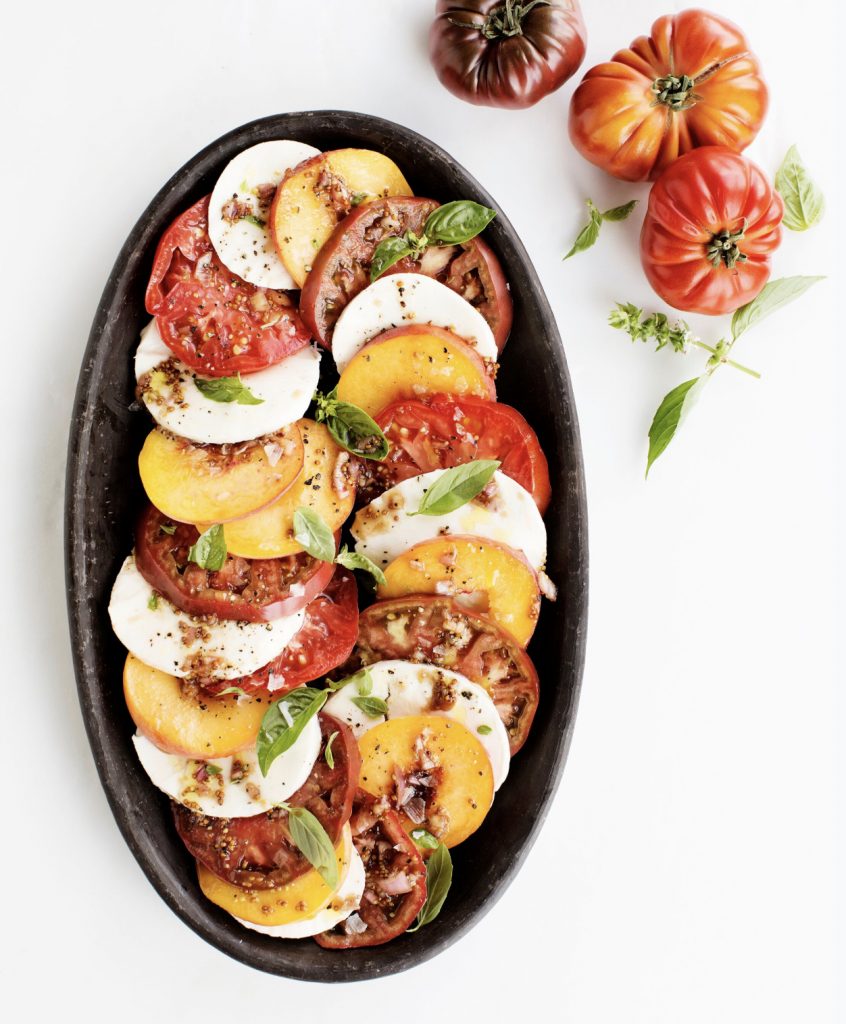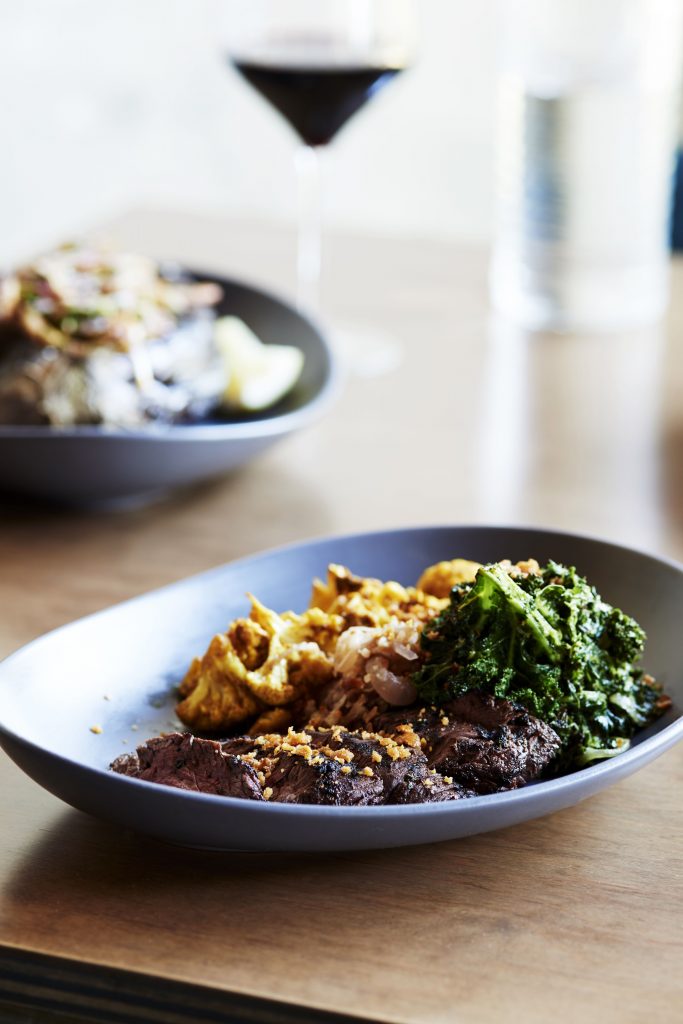
Though there’s often evidence to the contrary, we are blessed, you and I, living here and now as we do. Specifically: we do not endure compulsory conscription, and we do not endure war in our backyards. War does not come to us; we go over there. It’s a challenge to comprehend combat’s impact when it exists at such vast distance. Take the long-running conflict in Syria: the Syrian civil war has disrupted millions of lives. But it has little effect on most Americans. How do we wrap our minds around tragedy of that scale? They become numbers, not people. It’s hard to feel compassion for a number.
Hrant Arakelian is a real person. Not an anonymous figure, not a statistic. Arakelian is chef and co-owner of Lyra, the newest addition to the ever-expanding Nashville food universe. He is laying out his family history, tracing his Armenian roots to the ancient land of Cilicia: “A kingdom,” he explains, “not attached to the country of Armenia. It was separate, in the southwestern corner of Turkey. Between Turkey and Syria.”
Arakelian’s ancestral home is torn apart by violence today. It’s not the first time. “Our family left during the genocide,” Arakelian tells me. In 1915 the Ottoman Empire attempted to eradicate their Armenian neighbors. It was the 20th century’s first genocide—human rights lawyer Raphael Lemkin coined the word to describe the slaughter. Somewhere between 1 and 1.5 million Armenians perished. How did Arakelian’s family escape?
“Was it your great-great?” suggests Liz Endicott, Lyra’s co-owner slash beverage director slash pastry chef. Turns out, it’s just one great. Arakelian shares the story: “My great-grandfather was a really high-ranking Freemason and got tipped off to the incoming genocide before it happened. So he was able to escape.” I shake my head in disbelief. Endicott and Arakelian are married; like any good couple, they finish each other’s stories. Endicott jumps in. “He was told to get his family out, not really knowing why. He just . . . did it. Luckily! He was a pistachio farmer, very successful. Left everything, never to return.”
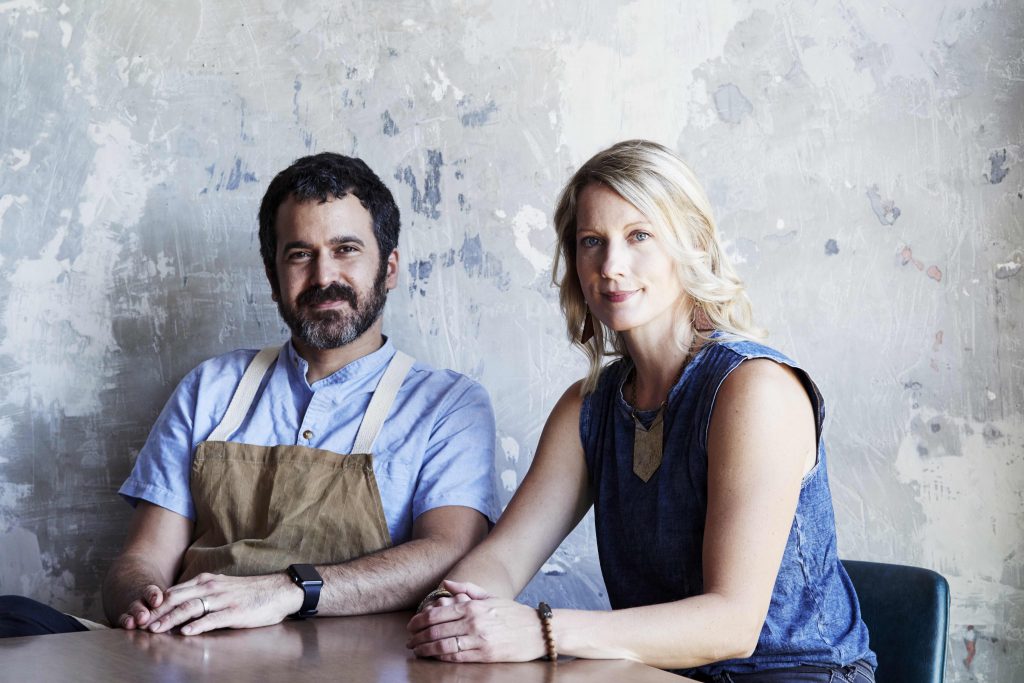
Have you ever been there? I ask Arakelian. “I haven’t,” he replies, letting out a deep sigh. “It’s definitely a part of the world that I really would like to go back to visit. We had an opportunity to go a few years ago, before the fighting restarted. Unfortunately the timing didn’t work out. I kinda wish it had because now it’s not a good time to go.”
Leaving their homeland and their pistachios behind, Arakelian’s family found a more peaceful existence in Tripoli, Lebanon, where his father Dickran was born. Dickran came to the United States for college, pursuing a degree in architecture from the University of Tennessee Knoxville. There, he met his future wife and native East Tennessean, Carolyn. After college, the couple moved to the Middle East together, and Arakelian spent his early childhood bouncing between Beirut and Muscat, Oman. But his parents wanted better schools and to be closer to family, so when he was eight, the family moved to Nashville.
If you want to know someone, meet their ancestors, right? The more I learn about Arakelian’s family odyssey, the more I understand the building blocks of his cuisine. He tells me about his mother. “My mom was a fantastic cook. [She] learned from my dad’s mom how to cook a lot of the Middle Eastern food. She was a girl from East Tennessee, so she’d never experienced that before.”
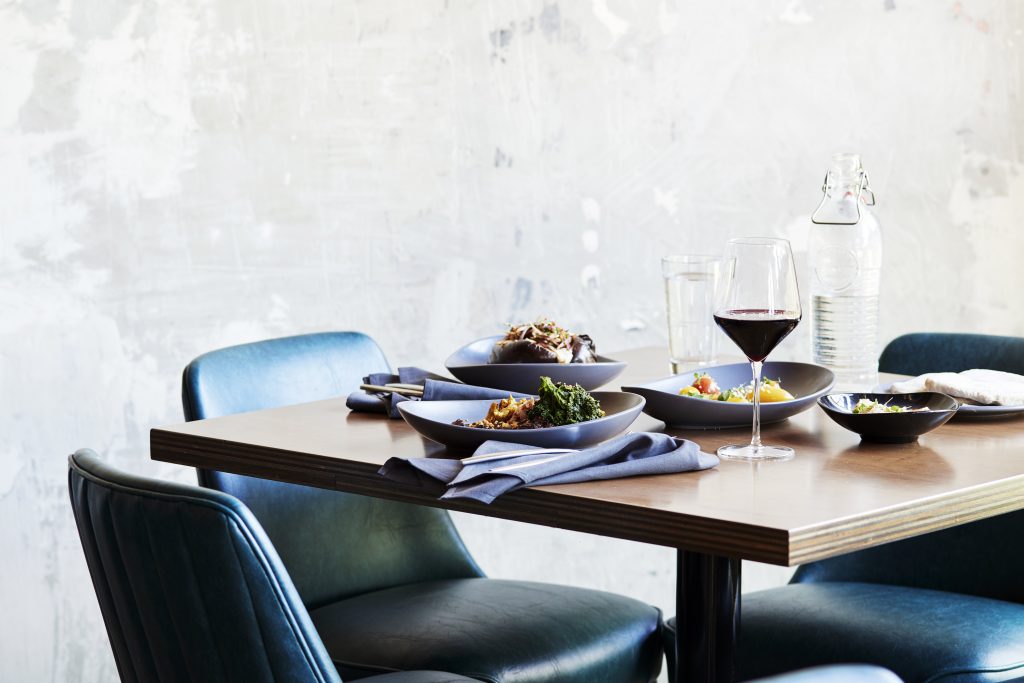
Both of Arakelian’s parents knew their way around a kitchen. “When we ate at home, we ate really well . . . Christmas was always dolmas, kibbeh sanieh [sort of like meatloaf, baked with bulgur], kibbeh nayyeh [a spiced tartare], tabbouleh salad, hummus, and all that kind of stuff.”
It’s a sunny morning. Arakelian, Endicott, and I are sitting together around a corner table at Lyra, sharing an incredibly strong pot of coffee. I begin to salivate as Arakelian lists all the wonderful foods his family enjoys. Given the quality of his parents’ home cooking, it’s no surprise he found his way into the restaurant business. “I didn’t start cooking in a restaurant until I was in college,” he explains. “I just took it as a job and ended up liking it. A lot. Definitely a lot more than I liked going to college.” He laughs. So does his partner.
Endicott ended up in a restaurant before she’d even graduated high school. She smiles as she shares with me. “A Po’Folks opened up down the street from our house. Are you familiar? You probably don’t know what Po’Folks is. It’s kind of like a Cracker Barrel–type restaurant. Southern food . . . My dad’s like, ‘You go there and get a job!’”
Endicott was unsure at first, but the tips helped. “Waiting tables—even at sixteen at a little place like that that doesn’t serve alcohol—you make pretty good money . . . I just stayed in restaurants from there.”
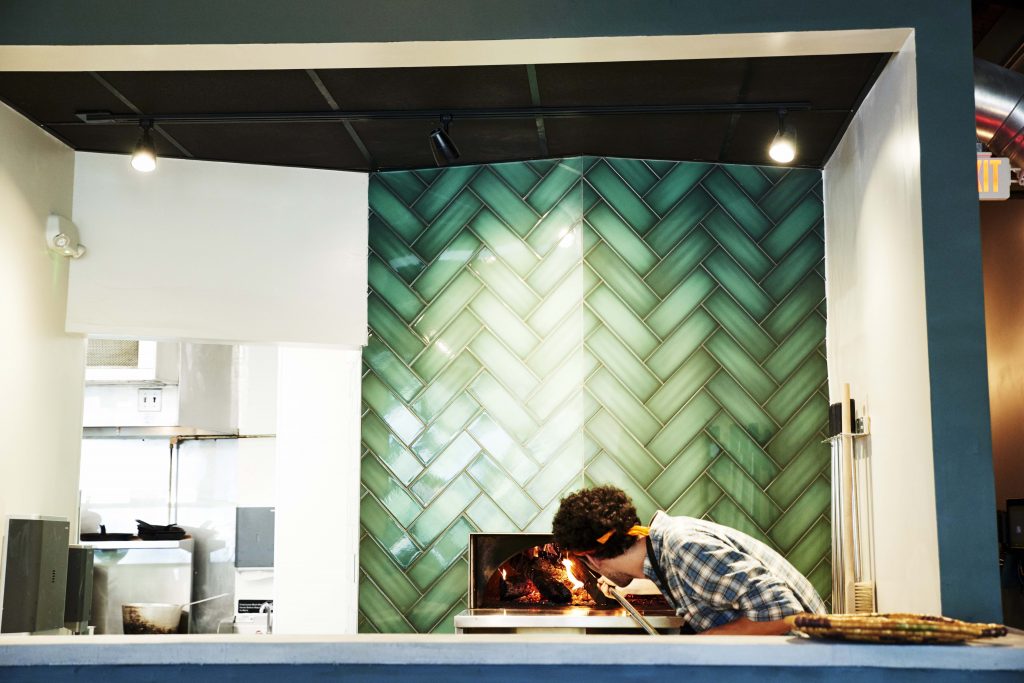
Both Arakelian and Endicott arrived at Lyra with decades of experience in some of Nashville’s finest restaurants. Endicott worked at F. Scott’s in Green Hills, and immediately prior to opening Lyra, she spent six years as the beverage director at Lockeland Table. “I miss them. It was great!” she exclaims. Arakelian’s resume includes stops at Amerigo, Adele’s, Rumours, and Holland House, but this is his first top-to-bottom executive chef position.
About that last spot: I’m not sure if it’s a sensitive subject—Holland House closed quite suddenly and had a ton of fans. I’m curious about how the community has responded to Lyra. “Well . . .” Endicott trails off. Arakelian jumps in. “We had one guest say that they hated this place because it wasn’t Holland House.” Endicott continues. “They hated what we did with it. They hated everything about it.” Thankfully that reaction is the exception. And as Endicott points out dolefully, they were fans as well. “We loved Holland House too! Even before he worked there, we went there.”
With a sweet smile, she recalls a story. “When he and I first started dating—you know, ahem—we’d wake up in the morning, have our coffee, talk about all the things we’re gonna eat through the day. The dream of opening a restaurant was always there, from the beginning.” It was still a distant fantasy, but the couple would scan listings, just to see what was available. The very first space they ever viewed together? The building where we currently sit.
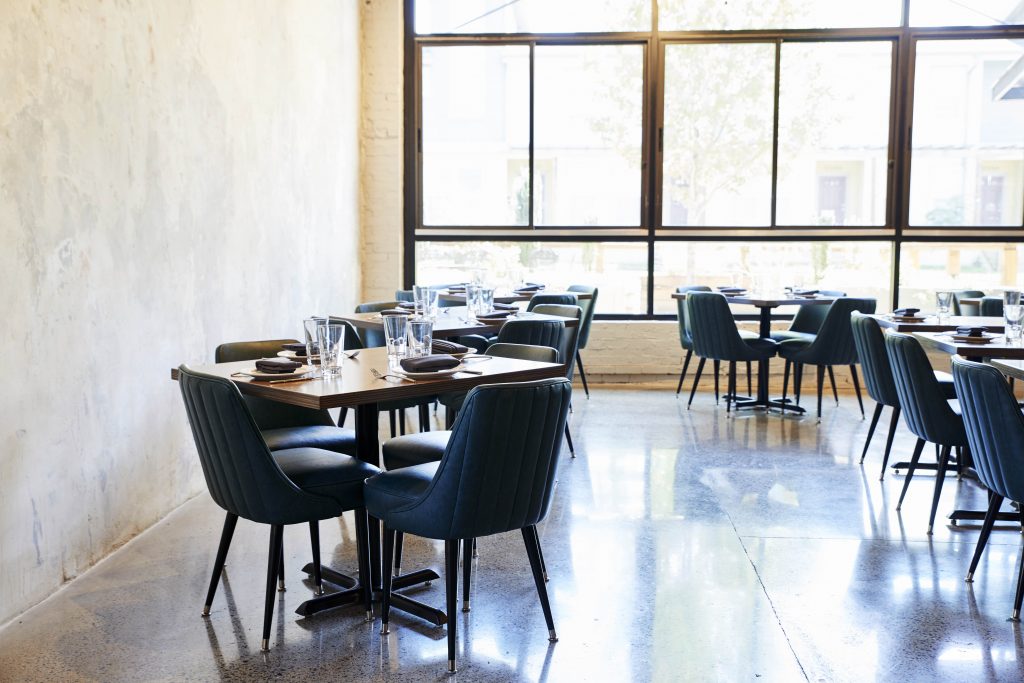
They’re practically beaming as they walk me through the changes they’ve made to the space. The green wall, that’s new. Olympic Green, they tell me. So is the wood-fired oven. I imagine moving from chef to owner allowed for some gratifying upgrades. “It was awesome,” Arakelian says, grinning.
Trimming back the private dining room gave Arakelian the freedom to let his workspace breathe. “We were able to almost double the size of the kitchen . . . Also having an open wood-oven area and an open window to the kitchen—it’s made it feel a lot bigger and a lot more roomy. Adding a prep kitchen was just huge.”
Some chefs don’t actually want to run the place. Some simply want to cook—not so for Arakelian. “I love the idea, personally, of having a restaurant that is all yours. That you can set every level, every detail of. From the name, to the style it is, to the style of food. Sometimes, when you go in as a chef to an existing restaurant, there are some constraints on what you can do because of what the restaurant already is. So for us, managing our own, we can do whatever we want.”
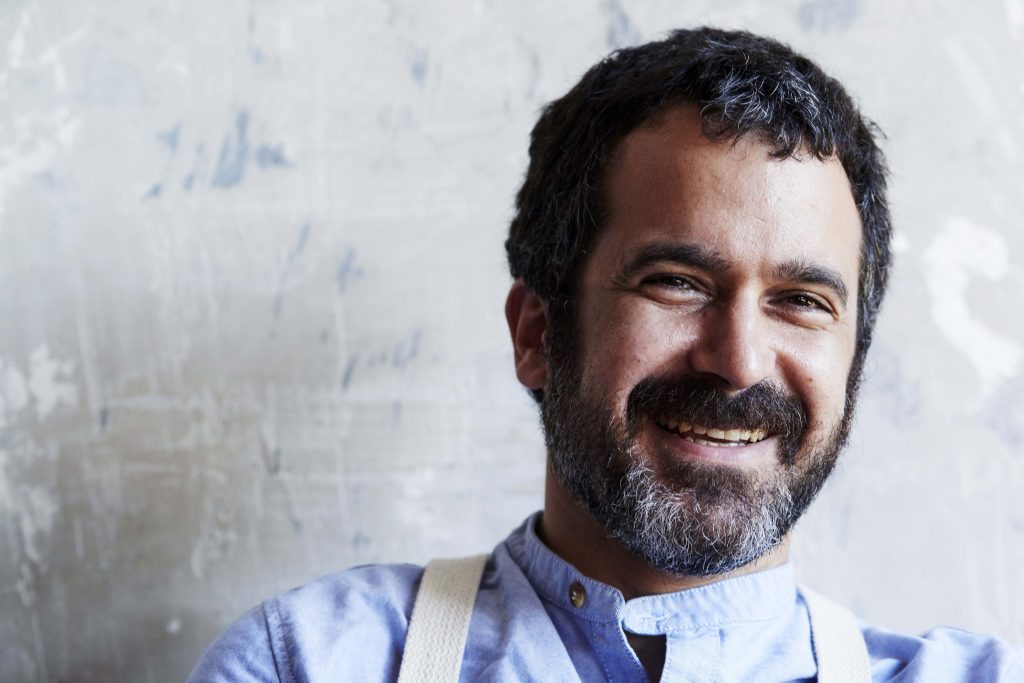
It’s true, you can get to know a person by meeting their extended family. But you can immerse yourself in their culture when you experience the food. And so, later that evening, I return to Lyra, this time with company. It’s a clear night and we can see a handful of stars. The place is packed, but the same corner table is waiting for me: twelve hours in and already I feel like a regular.
The meal opens with the classic starter, a disc of za’atar flatbread, flavored with wild thyme, sumac, and sesame seeds. The za’atar mixture is one of the key spice combinations of Middle Eastern cuisine. Arakelian describes it: “It’s a very herbaceous flavor, it’s very pungent. That wild thyme has a lot of stuff going up in the nose. It’s very strong.”
Endicott has made a za’atar syrup for the Ursula, a drink that also contains vodka, sweet vermouth, and lemon. All the cocktails are named after villains (except the happy hour drinks, which are heroes). “Villains aren’t represented enough!” exclaims Endicott. “They needed some love!” My date is drinking the Dark Phoenix. The concoction of reposado tequila, Campari, grapefruit, lime, and a rosemary date syrup is served on the rock: a single block of ice runs the height of the glass. It’s rusty, bitter, and complex, just like Jean Grey when she turned into the . . . you get the picture.
Salt-baked heirloom tomatoes follow the za’atar. Arakelian serves the splendidly in-season fruits with puffed bulgur, feta, pepper oil, and whole leaves of fresh oregano. The dish is beautifully balanced. It’s crunchy and creamy. Salty and sour. Rich but light. Cooling, with a touch of spice from the pepper oil. It’s perfect for a hot summer night—or any night, for that matter.
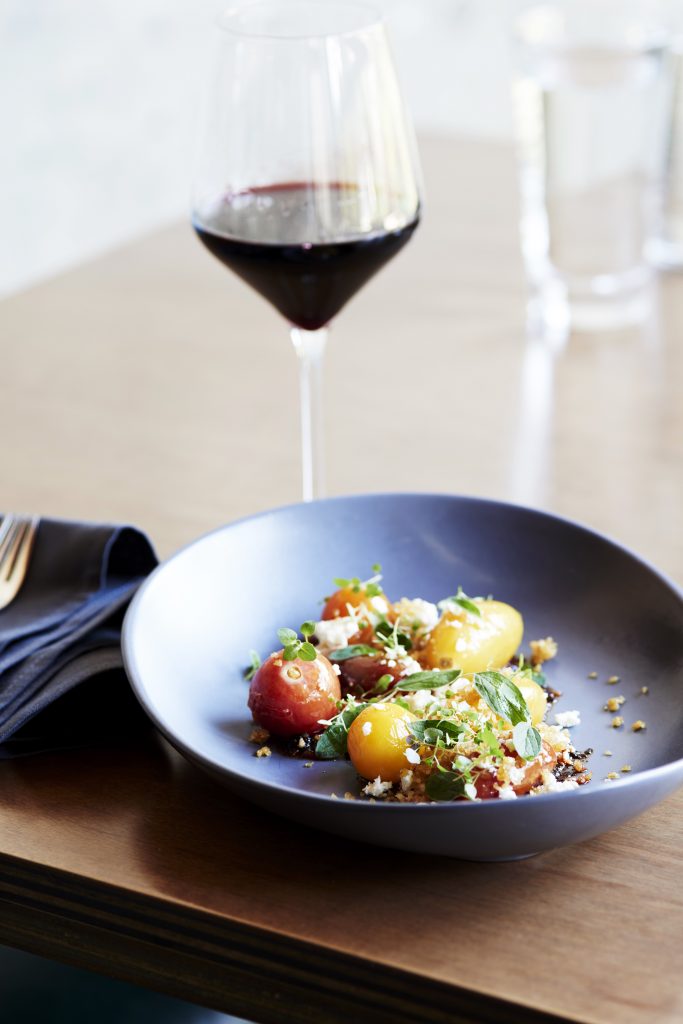
The watermelon salad with mint, halloumi, and hot banana peppers achieves a similar equilibrium—sweet and spicy, like good barbeque. As we eat, I watch Arakelian and Endicott move across the floor. Each table gets at least one visit. They stay a while, sometimes taking a seat to clarify the difference between Aleppo and Maras peppers, or to explain the roots of my phenomenally tart drink made from apricot leather, purchased locally at the Newroz Kurdish market. Lyra’s mocktail menu is in development and Endicott is clearly already a specialist. “In the Middle East,” she relates, “most of the countries are Muslim. And so there aren’t cocktails in those regions, but they’re incredibly creative with nonalcoholic drinks.”
Our meal continues in this fashion. A colorful plate arrives, redolent with spice. We dig in and our hosts stop by to provide context. It’s an epicurean lesson, with sidebars for history, anthropology, family vignettes. A dinner party: that’s what it feels like. As if our friends Hrant and Liz have invited us into their home for dinner and conversation. After traditional desserts of Orange Almond Cake and Armenian Honey Chocolate Layer Cake, I’m sad that it’s over. We get lots of hugs as we head for the door.
After I leave, I realize I’ve learned so much about Arakelian’s roots in such a short time. I can’t shake from my imagination the nightmare it must have been for his family to gather what they could before leaving behind their ancestral home and making their way in an unfamiliar land. One tale in particular has stuck with me. Arakelian is talking about his childhood in Lebanon and Endicott gets excited. “Tell the story about the bread!” she shouts.
Arakelian smiles. Tripoli was still rural when his father’s family settled there, and many of the houses didn’t have ovens. “So if the house wanted to make bread,” he explains, “they would have to take it down to the communal oven at the bakery. They would put the bread on these big wooden boards, these big long boards [that] had each one of the flatbreads laid out on it.”
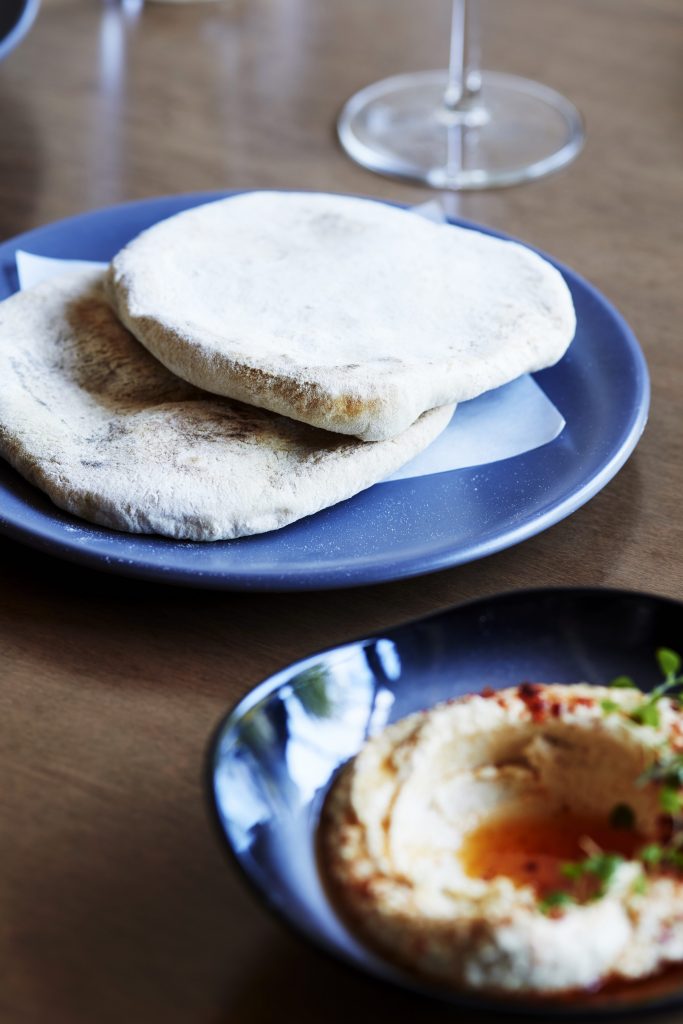
Arakelian smiles. Tripoli was still rural when his father’s family settled there, and many of the houses didn’t have ovens. “So if the house wanted to make bread,” he explains, “they would have to take it down to the communal oven at the bakery. They would put the bread on these big wooden boards, these big long boards [that] had each one of the flatbreads laid out on it.”
“And every family had their own shape?” Endicott interjects.
“Yeah, every family would do their own shape, so the baker knew whose family—”
“Whose was whose!” cries Endicott.
So Arakelian and Endicott installed Lyra’s wood-burning oven as one more way to pay homage to the past. Though you can’t bring in your own dough to bake at Lyra (at least I don’t think you can—you may have to ask Arakelian about the Bring Your Own Bread policy), when you dine there, you experience something that harkens back to that community in Tripoli. You experience a “shape” that has taken years and generations to perfect—a shape that honors Arakelian and Endicott’s past while looking to the future.
“We’ve had a lot of people from [the Middle East] come here to eat,” Hrant tells me. “Food is what brings people together.”
Lyra is open Monday through Saturday 4 p.m. to 10 p.m.
Suggested Content
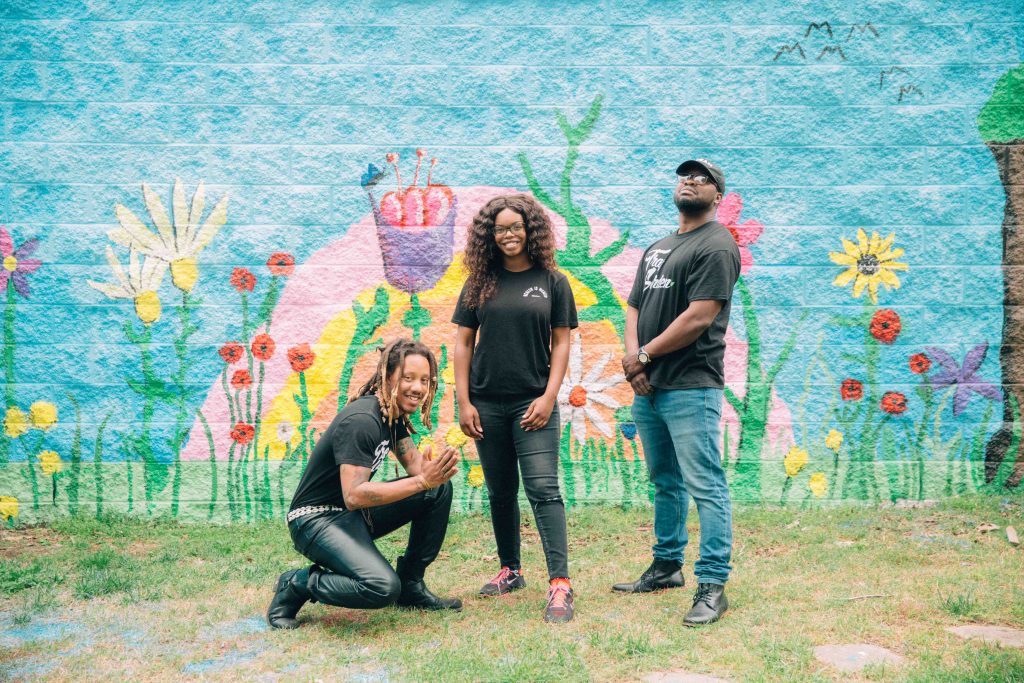
Can You Dig It?
How urban farming nonprofit Trap Garden is working to eradicate Nashville’s food deserts

Double Scoop of Happiness
Kokos Ice Cream creators Jerusa van Lith and Sam Brooker want to show you just how good ice cream can be.

